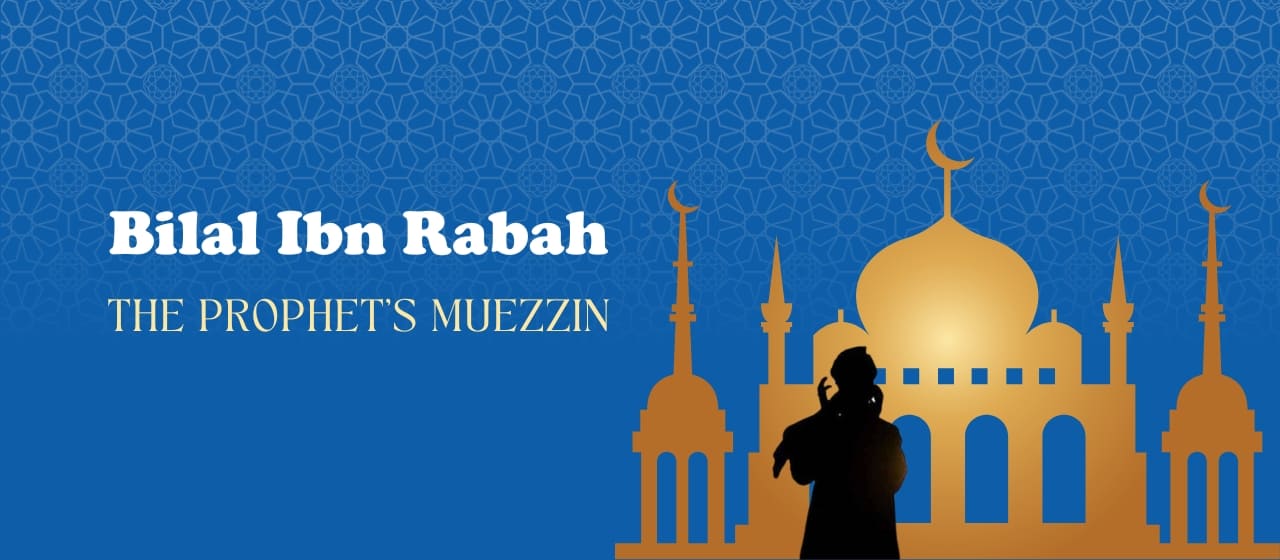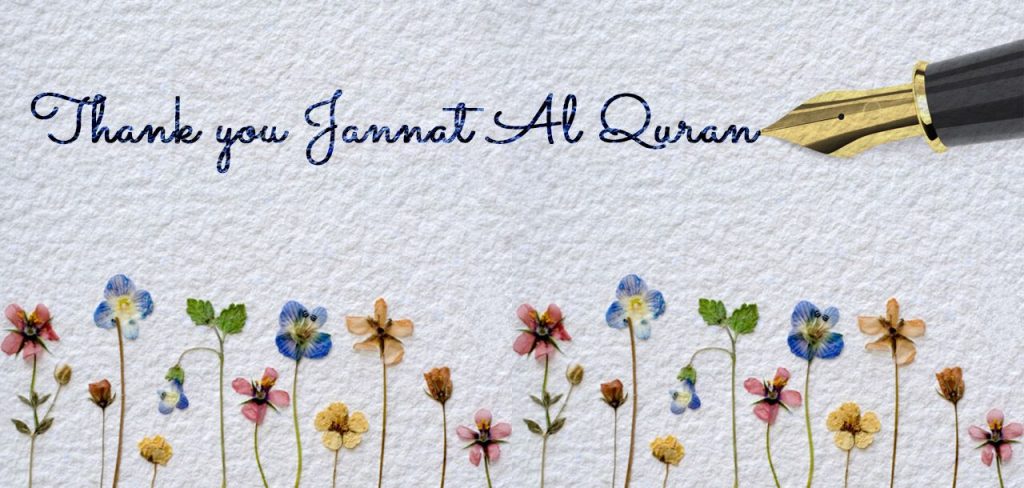Sayyiduna Bilal Ibn Rabah is one of the most prominent companions of the Prophet Muhammad (ﷺ). His life is a true manifestation of sacrifice, bravery, and patience. He challenged the constraints of slavery and social discrimination. He was among the early companions who embraced Islam. He immigrated to Madinah, and witnessed all the battles side by side with the Prophet Muhammad. He witnessed the battle of Badr. Abu Hurairah reported the Messenger of Allah (ﷺ) as saying ”Allah looked at the participants of the battle of Badr (with mercy) and said : Do whatever you wish ; I have forgiven you.” The words he repeated while being tortured to abandon Islam became a symbol of monotheism. He is the freed slave of Abu Bakr Al-Siddiq (may Allah be pleased with him), and the Muezzin of the Messenger of Allah. He is Bilal ibn Abi Rabah al-Qurashi al-Taymi al-Kindi.
embracing Islam
Sayyiduna Bilal ibn Rabah (may Allah be pleased with him) was the first among the slaves to embrace Islam. He used to herd sheep for Abdullah ibn Jud‘an. One day, the Prophet (ﷺ) saw him while he was in the cave with Abu Bakr (may Allah be pleased with him). The Prophet called out to him and asked for some milk. Bilal told him that he had only one sheep with him. The Prophet (ﷺ) asked him to bring it, then milked it himself and drank until he was satisfied, after which he gave Abu Bakr and Bilal to drink. The sheep became more energetic than before. The Prophet (ﷺ) then invited Bilal to Islam — and he accepted.
He continued to return to the same place for three days, learning about Islam. Then Abu Jahl passed by ‘Abdullah ibn Jud‘an and told him that their sheep had been growing healthier for the past three days, and that Bilal had been going to the pasture of Ibn Abi Kabshah (a name by which the Quraysh mockingly referred to the Prophet ﷺ). So they forbade Bilal from going there. One day, Bilal entered the Ka‘bah, looked around, and seeing that no one from Quraysh was there, he spat on the idols and said: “Perished and lost are those who worship you.” When the Quraysh learned of this, Bilal fled to the house of his master, ‘Abdullah ibn Jud‘an, as the Quraysh were seeking him. But ‘Abdullah handed him over to them and gifted him to Abu Jahl and Umayyah ibn Khalaf to do with him as they pleased.
the first of the slaves to embrace Islam
It was also narrated that Abdullah bin Mas’ud said:
“The first people to declare their Islam publicly were seven: The Messenger of Allah (ﷺ), Abu Bakr, Ammar and his mother Sumayyah, Suhaib, Bilal and Miqdad. With regard to the Messenger of Allah (ﷺ), Allah protected him through his paternal uncle Abu Talib. With regard to Abu Bakr, Allah protected him through his people. As for the rest, the idolators seized them and made them wear coats of chain-mail and exposed them to the intense heat of the sun. There was none of them who did not do what they wanted them to do, except for Bilal. He did not care what happened to him for the sake of Allah, and his people did not care what happened to him. Then they gave him to the children who took him around in the streets of Makkah while he was saying, Ahad, Ahad (One, One).'”
The Torture of Sayyiduna Bilal
Sayyiduna Bilal was subjected to the most severe forms of torture, carried out by the chiefs of disbelief — the Pharaoh of this nation, Abu Jahl, and Umayyah ibn Khalaf. They would lay him down on the scorching ground under the blazing sun, with his hands and feet tightly bound, and then place a heavy stone upon his stomach. Ibn Saad narrated from Umayr ibn Ishaq who said: “When the torture upon Bilal became severe, he would say: ‘Ahad, Ahad (One, One).’ They would tell him, ‘Say what we say!’ But he would reply, ‘My tongue cannot utter it.’”
The Prophet Muhammad (ﷺ) acknowledged Bilal’s faith and noble status, and said, “What an excellent man Bilal is — the master of the muezzins on the Day of Resurrection. The muezzins will have the longest necks on the Day of Judgment.” In the next part, we shall explore his life in Madinah, his noble service as the Muezzin of the Prophet (ﷺ), and his enduring legacy in Islamic history.



I appreciate the honesty and openness in your writing.
So simple, yet so impactful. Well written!
I appreciate how genuine your writing feels. Thanks for sharing.
I think other web site proprietors should take this website as an model, very clean and wonderful user friendly style and design, as well as the content. You’re an expert in this topic!